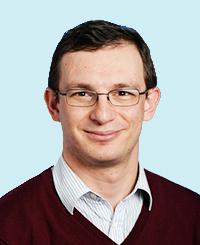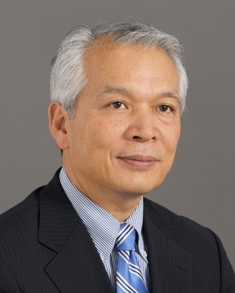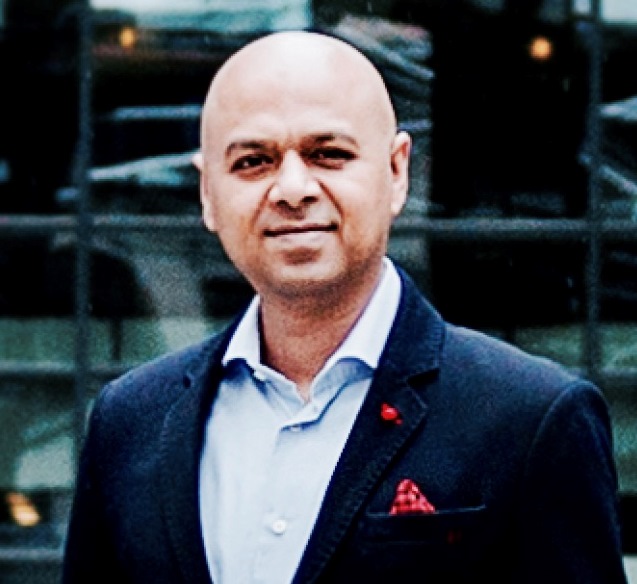Keynote by Prof. Onur Mutlu [Main Conference Room] (9:00+x-10:30, Aug. 29)
Session Chair: Prof. Jalil Boukhobza (Université de Bretagne Occidentale)
Title: Rethinking Memory System Design (for Data-Intensive Computing)
Abstract:
The memory system is a fundamental performance and energy bottleneck
in almost all computing systems. Recent system design, application,
and technology trends that require more capacity, bandwidth,
efficiency, and predictability out of the memory system make it an
even more important system bottleneck. At the same time, DRAM and
flash technologies are experiencing difficult technology scaling
challenges that make the maintenance and enhancement of their
capacity, energy efficiency, performance, and reliability
significantly more costly with conventional techniques. In fact,
recent reliability issues with DRAM, such as the RowHammer problem,
are already threatening system security and predictability. We are at
the challenging intersection where issues in memory reliability and
performance are tightly coupled with not only system cost and energy
efficiency but also system security.
In this talk, we first discuss major challenges facing modern memory
systems (and the computing platforms we currently design around the
memory system) in the presence of greatly increasing demand for data
and its fast analysis. We then examine some promising research and
design directions to overcome these challenges. We will touch on
several key topics: 1) novel issues in memory reliability and security
and how to enable fundamentally secure, reliable, safe architectures,
2) reducing memory latency and energy consumption by tackling the
fixed-latency/energy mindset, 3) enabling data-centric and hence
fundamentally energy-efficient architectures that are capable of
performing computation near data, 4) enabling emerging non-volatile
memory (NVM) technologies via hybrid and persistent memory systems. If
time permits, we will also discuss research challenges and
opportunities in NAND flash memories.
Biography:
|
Onur Mutlu is a Professor of Computer Science at ETH Zurich. He is also a faculty member at Carnegie Mellon University, where he previously held the William D. and Nancy W. Strecker Early Career Professorship. His current broader research interests are in computer architecture, hardware security, computing systems, and bioinformatics. He is especially interested in interactions across domains and between applications, system software, compilers, and microarchitecture, with a major current focus on memory and storage systems. A variety of techniques he, along with his group and collaborators, have invented over the years have influenced industry and have been employed in commercial microprocessors and memory/storage systems. He obtained his PhD and MS in ECE from the University of Texas at Austin and BS degrees in Computer Engineering and Psychology from the University of Michigan, Ann Arbor. His industrial experience spans starting the Computer Architecture Group at Microsoft Research (2006-2009), and various product and research positions at Intel Corporation, Advanced Micro Devices, VMware, and Google. He received the inaugural IEEE Computer Society Young Computer Architect Award, the inaugural Intel Early Career Faculty Award, faculty partnership awards from various companies, a healthy number of best paper or "Top Pick" paper recognitions at various computer systems and architecture venues, and the ACM Fellow recognition "for contributions to computer architecture research, especially in memory systems." His computer architecture course lectures and materials are freely available on YouTube, and his research group makes software artifacts freely available online. For more information, please see his webpage at https://people.inf.ethz.ch/omutlu/. |
Keynote by Prof. Hideyuki Tokuda [Main Conference Room] (11:00-12:00, Aug. 30)
Session Chair: Dr. Robert Davis (University of York)
Title: Shaping the Future Society by IoT and AI ~ Evolution of ICT and its "light" and "shadow" ~
Abstract:
The evolution of IoT (Internet of Things) and AI is accelerating. Smart devices, sensors, and actuators create smart IoT devices and connected services in transportation, manufacturing, energy, environment, disaster prevention/mitigation, safety, healthcare and so on. In addition, various digital optimization and automation are deployed by visualization and analysis of big data collected by IoT. Many predictive apps are also initiated by AI.
While we are expanding these "connected merits", cyberattacks targeting familiar IoT devices are also rapidly increasing, and the "connected risks" are diversifying. Furthermore, the ethical, legal and social implications by introducing AI are concerned.
In this talk, we first introduce the research and development activities of NICT and various IoT and AI services in use. We then discuss the current status of cyberattacks targeting IoT devices and the capacity building of Cybersecurity specialists in Japan. We summarize with the issues in shaping future society with IoT and AI.
Biography:
|
Hideyuki Tokuda is President of the National Institute of Information and Communications Technology (NICT) and professor Emeritus of Keio University, Japan. He obtained his B.S. (1975), M.S. (1977) from Keio University and Ph.D. (Computer Science) (1983) from University of Waterloo, Canada, respectively.
|
Keynote by Prof. Fahim Kawsar [Main Conference Room] (15:00-16:00, Aug. 30)
Session Chair: Prof. Jin Nakazawa (Keio University)
Title: Computational Behavior Modelling for the Internet of Things
Abstract:
The Internet of Things is upon us, and we are observing a monumental effort from the industry and academia to make everything connected. Naturally, to design computational experiences in this uber-connected world, we need a better understanding of people-to-people, people-to-place, people-to-thing interactions. This behavioural understanding would help us to create digital services and capabilities that fundamentally change the way we experience our lives. In this talk, I will explore the system and algorithmic challenges in modelling human behaviour in this new connected era. I will discuss how mobile and wearable devices together with the wireless network can be used as a multi-sensory computational platform to learn and infer human behaviour and to design user-centred connected services across Smart Built Environment and Quantified Lifestyle.
Biography
|
Dr Fahim Kawsar leads the Pervasive Systems research at Nokia Bell Labs, Cambridge, UK and holds a Design United Professorship at TU Delft, Netherlands. He borrows tenets from Social Psychology, learns from Behavioural Economics and applies Computer Science methods to develop human-centred software systems. An experimental computer scientist at heart, he spends most of his time at Cambridge building efficient, robust, sensory AI systems with novel computational forms to explain human behaviour with other people, places, and things. He is intrigued by the power of design and frequently visits TU Delft to teach and debate the influence of data systems in redefining design, and vice versa. Fahim has (co-)authored 120+ publications, filed 20+ patents, sit on the editorial boards of IEEE Pervasive Computing, and ACM IMWUT, delivered numerous keynote talks and served as organising and program committee member of leading mobile, wearable, and pervasive systems conferences and had multiple million-scale projects commissioned. Fahim has a PhD in Computer Science from Waseda University, Japan, and has worked before at Lancaster University. |


